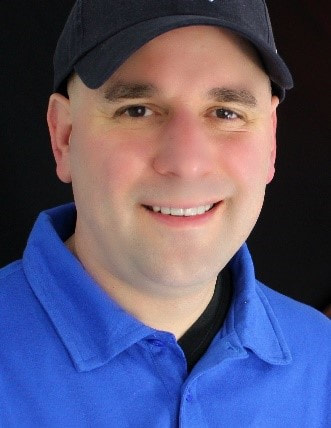Hi there – I’m Tommy Carbone. I grew up in the Greenpoint section of New York City during the 1970s. I survived the streets of a city in despair, became an engineer, powered through a PhD, and have since travelled the world managing projects, observing cultures, and having foodie adventures. In my memoir, Growing Up Greenpoint: A Kids Life in 1970s Brooklyn, I tell of fun times I had playing street games, searching out the best street food, and bonding with a large extended family.
I am currently getting ready for the release of, The Bandits of Lobster Lake, a mystery set in the beautiful, but unpredictable, north woods of Maine. It is an area of the state that is very dear to my heart and fills me with inspiration to write.
When I am not writing, I still have a day job managing projects in the high-tech industry. When I am lucky enough to be writing, you will find me in a one-room cabin, along the shores of a lake that remains frozen for up to six months out of the year and moose out number people three to one.
Since it’s a long way to the cabin, you can find me on the web at:
www.tommycarbone.com
Facebook: @TommyCarboneAuthor
Twitter: @TommyCarbone212
Book Blog: http://tommycarbone.com/blog/
My Amazon Author Page
And on Goodreads
Remembering Memories
I never intentionally set out to write a memoir of my adolescent years roaming the streets of Brooklyn, trying not to get smacked by a nun, and dodging cars during street games. I started writing Growing Up Greenpoint as a break from a different time period memoir I was writing. When I began, I figured I’d write down a couple of stories for my children about my childhood. Eighty thousand words and eighteen months later, I realized I had the makings of a book.
When I started to write, I had no idea I would remember what I remembered. The memories in the book were obviously stored away in my mind and only resurfaced through the act of writing them down. I didn’t outline, I didn’t reminisce with friends or relatives, I didn’t read any ‘how-to’ memoir books on structure or style. I just wrote. When I finished writing and editing and thought maybe it would be worth publishing, a friend asked how I learned to write. I thought to myself, “I’ve been writing since grade school, what’s he talking about?”
Sure, I had learned the writing rules of grammar (somewhat), but did I need to learn to write? I remembered during freshman English a professor gave me an F on a paper because I began three sentences with – And. If E.B. White could do it, why shan’t I? He told me I was no E.B. White.
I feared maybe my friend (and professor) had a point. I frantically downloaded several books on how-to write a memoir. I barely started most of them; I didn’t finish any of them. I went back to writing the way I wanted to write.
When I finished my third round of editing, I came across Still Writing by Dani Shapiro. That was a wonderful book. I personally don’t consider Still Writing a how-to book. It’s in a realm of its own. On those pages Dani provided encouragement and inspiration. It was in Dani’s book where I first read, “That for which we find words is something already dead in our hearts” - a quote from Friedrich Nietzsche. That statement resonated with me and I felt relieved in my writing process. I did learn a great deal from Dani’s words, just not how to write. (It’s a very tiny book after all.)
Many how-to authors try to give writers a cookbook. I cook a lot, I rarely use a cookbook; and when I do, I never follow the recipe. This drives my wife nuts, but she always compliments the meal.
When I think about that, I learned cooking growing up from my grandparents. I never recall seeing a cookbook on their counters. None of them needed one. Why would a writer need a recipe? When you write from the heart, doesn’t it flow much better? Let it go.
I don’t know if my memoir will resonate with a lot of readers. It’s too early to tell. I do know I am happy I endured to finish it and I am proud of what was accomplished. It is a gift to my children and their children about a time since over, with wishes for the future.
I never intentionally set out to write a memoir of my adolescent years roaming the streets of Brooklyn, trying not to get smacked by a nun, and dodging cars during street games. I started writing Growing Up Greenpoint as a break from a different time period memoir I was writing. When I began, I figured I’d write down a couple of stories for my children about my childhood. Eighty thousand words and eighteen months later, I realized I had the makings of a book.
When I started to write, I had no idea I would remember what I remembered. The memories in the book were obviously stored away in my mind and only resurfaced through the act of writing them down. I didn’t outline, I didn’t reminisce with friends or relatives, I didn’t read any ‘how-to’ memoir books on structure or style. I just wrote. When I finished writing and editing and thought maybe it would be worth publishing, a friend asked how I learned to write. I thought to myself, “I’ve been writing since grade school, what’s he talking about?”
Sure, I had learned the writing rules of grammar (somewhat), but did I need to learn to write? I remembered during freshman English a professor gave me an F on a paper because I began three sentences with – And. If E.B. White could do it, why shan’t I? He told me I was no E.B. White.
I feared maybe my friend (and professor) had a point. I frantically downloaded several books on how-to write a memoir. I barely started most of them; I didn’t finish any of them. I went back to writing the way I wanted to write.
When I finished my third round of editing, I came across Still Writing by Dani Shapiro. That was a wonderful book. I personally don’t consider Still Writing a how-to book. It’s in a realm of its own. On those pages Dani provided encouragement and inspiration. It was in Dani’s book where I first read, “That for which we find words is something already dead in our hearts” - a quote from Friedrich Nietzsche. That statement resonated with me and I felt relieved in my writing process. I did learn a great deal from Dani’s words, just not how to write. (It’s a very tiny book after all.)
Many how-to authors try to give writers a cookbook. I cook a lot, I rarely use a cookbook; and when I do, I never follow the recipe. This drives my wife nuts, but she always compliments the meal.
When I think about that, I learned cooking growing up from my grandparents. I never recall seeing a cookbook on their counters. None of them needed one. Why would a writer need a recipe? When you write from the heart, doesn’t it flow much better? Let it go.
I don’t know if my memoir will resonate with a lot of readers. It’s too early to tell. I do know I am happy I endured to finish it and I am proud of what was accomplished. It is a gift to my children and their children about a time since over, with wishes for the future.













